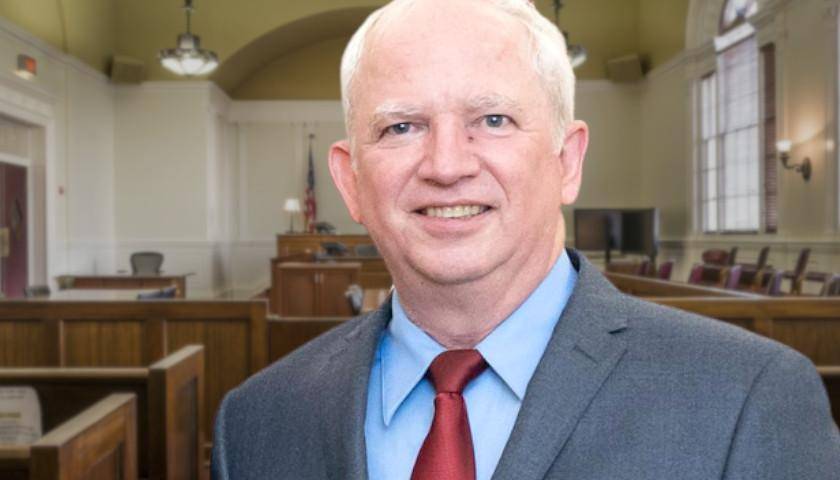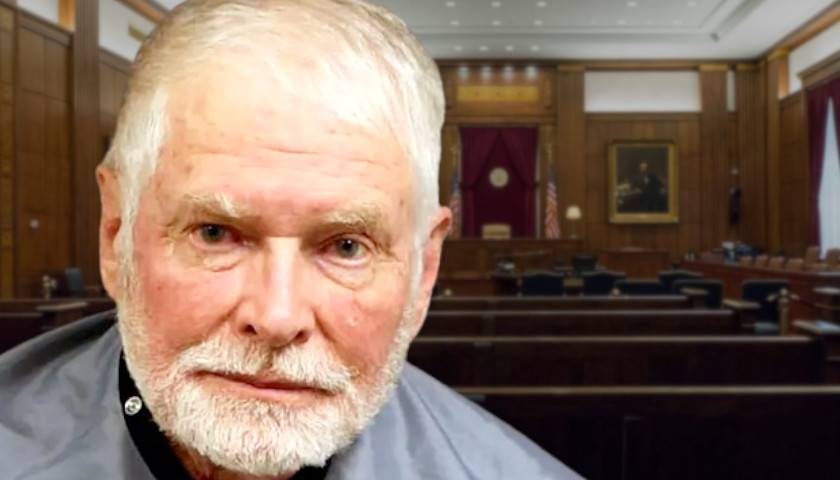The disbarment trial of Donald Trump’s former attorney and constitutional legal scholar John Eastman entered its fifth and likely final week on Tuesday, featuring testimony from Eastman and Kari Lake’s attorney Kurt Olsen. The State Bar of California is attempting to disbar Eastman for allegedly advising Trump and Vice President Mike Pence that Pence could reject electoral slates from states suspected of election fraud, but Eastman disputed that characterization of his advice on Tuesday.
Eastman said that Pence asked him during a meeting with Trump on January 4, 2020, if the vice president had the power to reject electoral votes. Eastman responded and said it was an open question that has never been resolved, but even if Pence had the power, it would be “foolish” to exercise it. Eastman advised Pence to consider having merely a brief delay in certification in order to allow the state legislatures to investigate whether there was illegal activity that affected the election.
Eastman further explained that he believed it would be “politically foolish” to reject the electoral slates from disputed states, since unlike previous historical situations such as Hawaii in 1960 where there were disputed slates, the contingent slates in 2020 hadn’t been certified by state governments.
Since Article II of the Constitution gives the power over how to choose electors to the state legislatures, Eastman said, if there was a violation of state laws by election officials, it was the legislatures’ prerogative to step in and fix the situation. He cited letters that state legislators co-signed — some with 90 to 100 legislators — listing off all the illegalities in the 2020 election. He added that courts later confirmed that illegal activity was occurring in the 2020 election in states like Wisconsin.
After Eastman suggested during the meeting that the better option might be merely delaying the acceptance of the electoral slates, he said he could tell the tone of the meeting changed and it no longer appeared that Trump or Pence were considering rejecting the electors, since the discussion about it ceased.
When Olsen took the witness stand, he discussed how economist Charles Cicchetti analyzed absentee ballots in Detroit from the 2020 election and found that 174,384 out of 566,694 did not have registration numbers. Cicchetti listed his findings in declarations that were included in 2020 election election lawsuits.
Next, Olsen discussed a lawsuit he helped draft, Texas v. Pennsylvania, where he said that there were thousands of extra votes for Joe Biden in Detroit that were “likely” the result of election workers running ballots through the tabulators multiple times, “with Republican poll watchers obstructed or denied access, and election officials ignoring poll watchers challenges, as documented by numerous declarations.”
The California bar’s attorney Duncan Carling tried to get Olsen to admit that Pennsylvania did not commingle 10,000 ballots that were received late after the election on November 3, 2020, but Olsen refused to agree. Olsen said Pennsylvania Secretary of the Commonwealth Kathy Boockvar admitted that they received the ballots late and never segregated them. He pointed out that U.S. Supreme Court Justice Samuel Alito SCOTUS expressed concern about this in an order.
Olsen discussed the Ryan Report, which was issued by Pennsylvania legislators and found that Pennsylvania said they mailed out 3.1 million ballots in 2020, but only 2.7 million ballots were actually sent out, with no explanation for the discrepancy of 400,000 ballots. The report also found that 9,005 ballots in Pennsylvania’s 2020 election had no mailed date, 58,221 ballots were returned on or before the mailed date, and 51,200 ballots were returned after the mailed date.
Eastman’s attorney Randy Miller attempted to question Olsen about a report from Verity Vote that he relied upon for his election litigation, which found that Pennsylvania received more than 121,000 votes in the 2020 election that cannot be attributed to any voter. However, California Bar Disciplinary Judge Yvette Roland, who has a history of contributing to Democrats while serving as a judge, refused to let him discuss it since investigator Heather Honey authored the report, not him.
Carling tried to discredit Cicchetti’s affidavits in regards to rejection rates for mail-in ballots in Pennsylvania’s 2020 election. Olsen explained that after Cicchetti came under criticism for his first affidavit, he doubled down defending it, said he could prove it, and added a supplemental affidavit to refute the criticism. Carling also tried to claim that the rejection rate of mail-in ballots decreasing 17 times between 2016 and 2020 wasn’t a big deal since expert Chris Harvey found that the rate didn’t change much between 2018 and 2020. However, Olsen shot back that it was “apples to oranges” since 2018 wasn’t a presidential election.
When it was Miller’s turn to redirect Olsen, he tried to ask him about the amicus briefs that other states filed in the Texas v. Pennsylvania case. As she had ruled previously, Roland refused to allow him to discuss them, stating that they weren’t relevant and lecturing him, “You’re asking for more time and you’re wasting time.” Miller tried to argue that they were relevant since it showed state officials agreed with Eastman, an indication that his position had credibility, but Roland cut him off.
The trial is expected to conclude on Thursday or Friday after more testimony by Eastman. His legal defense fund has raised $548,284 out of $750,000 needed, which includes his defense in the Georgia indictment of Trump, himself and others. The live stream is here.
– – –
Rachel Alexander is a reporter at The Arizona Sun Times and The Star News Network. Follow Rachel on Twitter / X. Email tips to [email protected].
Photo “John Eastman” by John Eastman Defense Fund.





